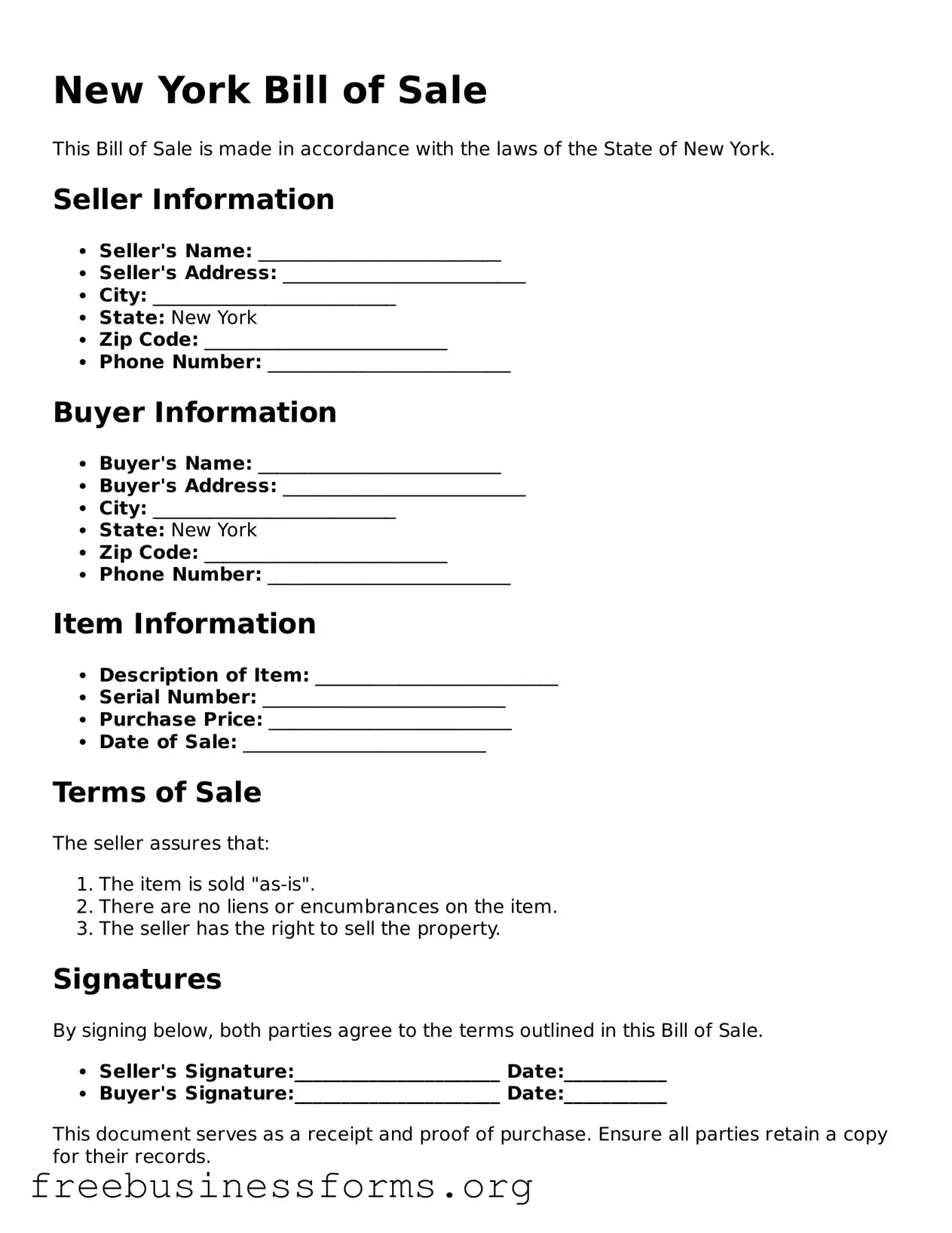Blank Bill of Sale Template for New York
A Bill of Sale is a legal document that transfers ownership of personal property from one person to another. In New York, this form serves as proof of the transaction and outlines the details of the sale. Understanding its components can help ensure a smooth transfer of ownership.
Open Form Here

Blank Bill of Sale Template for New York
Open Form Here

Open Form Here
or
↓ PDF File
Quickly complete this form online
Complete your Bill of Sale online quickly — edit, save, download.